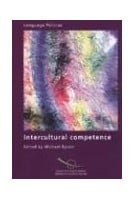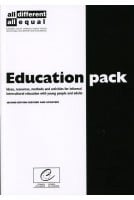Intercultural experiences pose inevitable challenges to one's personal identity and communication skills. One has to learn how to deal with unexpectedness, ambiguity and otherness as well as the resulting culture bumps or culture shock. The knowledge, skills and attitudes that are necessary for successful intercultural communication have to be observed, discussed and practised. This textbook wishes to help the trainer, the teacher and the learner in the process by encouraging culture-general discussions about culture with a small "c" and by using a reflective approach.
It is of great important to increase intercultural understanding in the world, and incorporating intercultural communicative competence in teacher training programmes should be one of the first steps in the process. Making intercultural communication training an integral part of teacher education is probably one of the greatest challenges of our times, but if successful, would have a beneficial multiplier effect in the field of education and beyond.









